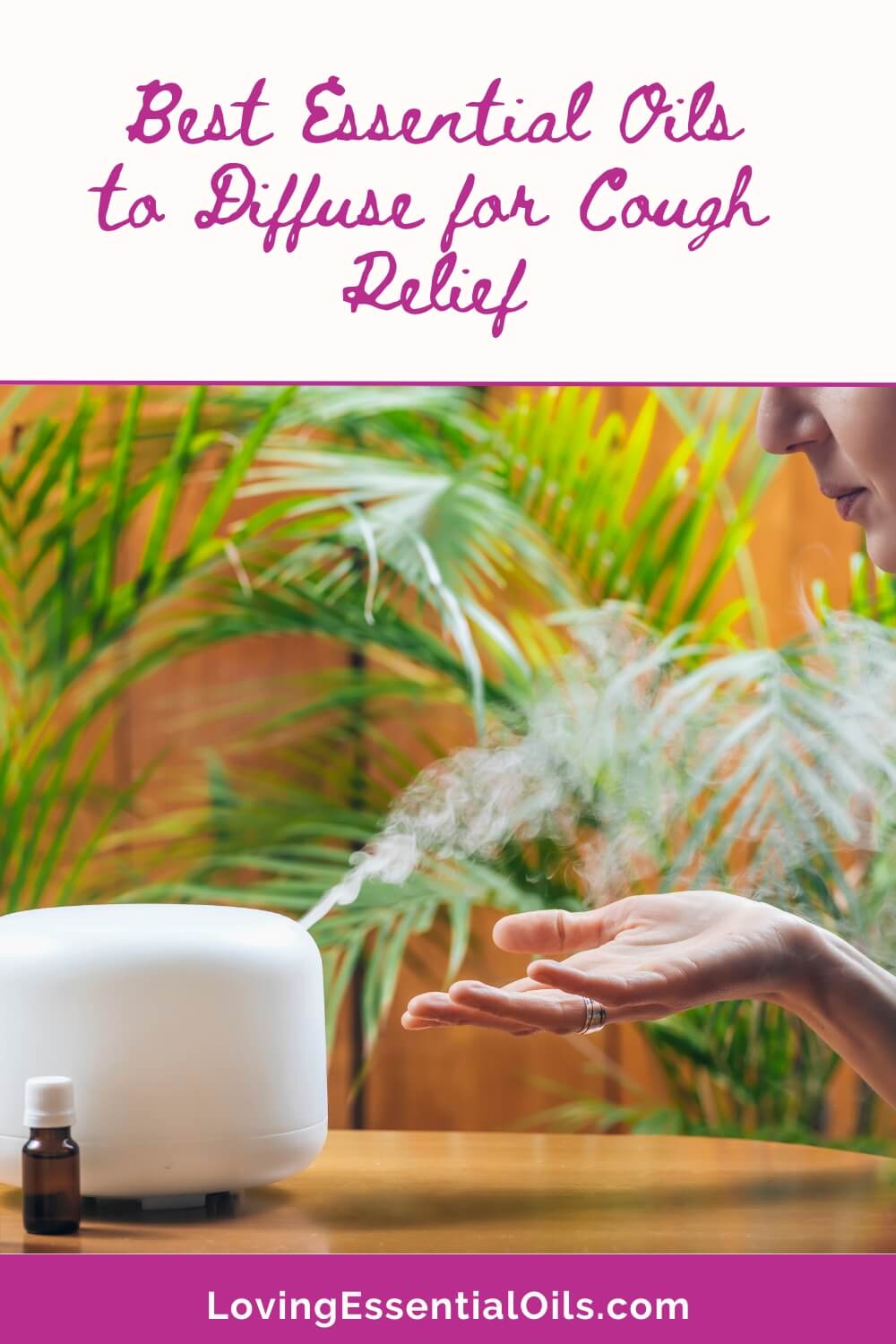Using essential oils to diffuse for cough relief is a popular practice among those looking to achieve natural symptom relief. There is evidence to support that certain essential oils used in aromatherapy contain properties that act as decongestants and help clear airways, reducing the severity of coughing symptoms.
A common use is to help relieve a cough and its associated symptoms, such as phlegm and tightness in the chest. So if you're dealing with a pesky cough, you may want to explore the potential therapeutic benefits of diffusing essential oils.
Why Diffuse Essential Oils for Cough?
Diffusing these oils into your environment may be beneficial for coughing symptoms. There have been studies conducted on the effects of inhaling certain essential oils in an effort to provide symptomatic relief from respiratory illnesses such as colds, flu, sinus infections, and bronchitis.
Researchers acknowledge further experimentation is required to investigate if different components of the essential oil make it more effective in treating certain symptoms.
The Benefits of Essential Oil Diffusing
The benefits of essential oil diffusing go beyond mere cough relief. Diffusing essential oils offers a comprehensive approach to wellness that touches on physical, mental, and emotional aspects of your health.
Research has indicated that diffusing certain essential oils can reduce stress hormones like cortisol and support restful sleep. While these aren't directly related to cough relief, they’re important for overall health and wellness, which may in turn help resolve or alleviate minor coughing episodes.
Essential oils offer myriad other benefits—like helping soothe sore throats and restore emotional balance. The antiseptic effects likely responsible for relieving cough symptoms can provide an additional layer of disinfectant protection in the home environment.
What are the Best Essential Oils to Diffuse for Cough Relief?
When diffusing essential oils to relieve cough symptoms, certain oils tend to be more effective than others. Some of the most commonly used essential oils in treating coughs are peppermint, eucalyptus, lemon, tea tree, rosemary, and lavender.
These oils have been studied for their anti-inflammatory and antispasmodic properties, which can help to suppress coughing spells. There are a variety of oil blends you can use to create a diffuser blend for a cough.
Lavender, Eucalyptus, and Peppermint
An easy blend to start with would be lavender, eucalyptus, and peppermint. These are among the most effective for relieving symptoms of a cough due to their soothing properties.
- Lavender is soothing, calming and helps to reduce inflammation in the respiratory system.
- Eucalyptus has expectorant and anti-inflammatory properties which can help break down mucus.
- Peppermint is great for helping open airways. It contains menthol and other compounds which have been found to reduce inflammation in the respiratory tract and reduce coughing fits.
Tea Tree Oil, Rosemary, and Lemon
Another blend you could try combining is tea tree oil, rosemary, and lemon. They have antibacterial properties which can help fight off infections that may be causing the coughing.
- Tea tree oil is an antibacterial that can help fight off any bacteria related to the cough.
- Rosemary soothes the throat and chest.
- Lemon helps to reduce inflammation as well.
Frankincense, Clove, and Ginger
A combination of frankincense, clove and ginger is useful in relieving symptoms of a cold or flu related cough.
- Frankincense helps reduce any tension in the lungs as well as reduces coughing fits.
- Clove fights infection and bring relief from pain.
- Ginger lasts for hours providing relief for chest congestion.
All of these recipes together combine to provide powerful relief from pesky coughs!
Furthermore, their antimicrobial activity makes them good at breaking up mucus and preventing secondary infections from developing.
Lemon and tea tree oil are also options for providing relief from coughing. Studies suggest these oils help clear nasal passages, decreasing congestion and thus reducing coughing fits caused by post nasal drip.
Frequently Asked Questions on Diffusing Essential Oils for Cough
How long should I diffuse essential oils for a cough?
The answer to your question depends on the severity of the cough. For a mild cough, it is recommended to diffuse essential oils for ten to fifteen minutes. You can repeat this routine throughout the day.
For a more severe cough, you can diffuse essential oils for fifteen to thirty minutes and repeat throughout the day. This should help reduce the symptoms and provide relief.
This should be done in combination with what is recommended by your doctor.
Are there any essential oils I should avoid using for a cough?
Yes, there are some essential oils that should be avoided when treating a cough. Eucalyptus oil, in particular, can cause irritation of the mucous membranes if used in high concentrations and is not recommended for use with young children and pregnant women due to its potency.
Similarly, wintergreen, birch, and fennel essential oils can also be irritating to sensitive individuals.
Additionally, some citrus essential oils such as bergamot, lemon and lime are phototoxic and can cause skin damage if applied topically and then that skin was exposed to direct sunlight.
Therefore, it is best to exercise caution when using any essential oil for a cough relief and to never apply undiluted oil directly to the skin.
Are there any safety concerns to be aware of when diffusing essential oils?
Yes, there are safety concerns to be aware of when diffusing essential oils. Additionally, certain essential oils such as menthol and eucalyptus should not be used around young children since they may trigger breathing difficulty due to the high concentration of constituent components.
It is also important to be aware that while some essential oils have antiviral and antimicrobial properties, they may still cause allergic reactions or aggravate existing conditions such as asthma.
Lastly, it is best to consult an aromatherapist or healthcare provider prior to use to ensure safe and effective use of any essential oil.
Essential oils can be highly concentrated and cause skin irritation and sensitization if used in large amounts or on sensitive areas, so it’s important to dilute properly with a carrier oil before use.
What are the benefits of diffusing essential oils for a cough?
The benefits of diffusing essential oils for a cough are numerous and can be seen both in the short-term and long-term. In the short-term, inhaling certain essential oils helps to open up your airways and reduce phlegm production. This can provide almost instant relief from coughing fits.
Additionally, some essential oils have natural anti-inflammatory properties that can help soothe irritated tissue in the throat and chest, helping to reduce the severity of a cough.
In the long-term, diffusing certain essential oils can help to strengthen the immune system, increasing your body's ability to fight off any underlying infections that might be causing the cough.
Furthermore, diffusing essential oils has been shown to reduce stress levels which can further support your immune system and aid in recovery.
Final Thoughts on Diffusing Essential Oils on Cough Relief
Whether one chooses to diffuse essential oils or opts for other remedies as a form of cough relief is ultimately up to them. That being said, exploring the potential benefits of diffusing select essential oils can be beneficial for some people looking for accessible and natural symptom relief.







